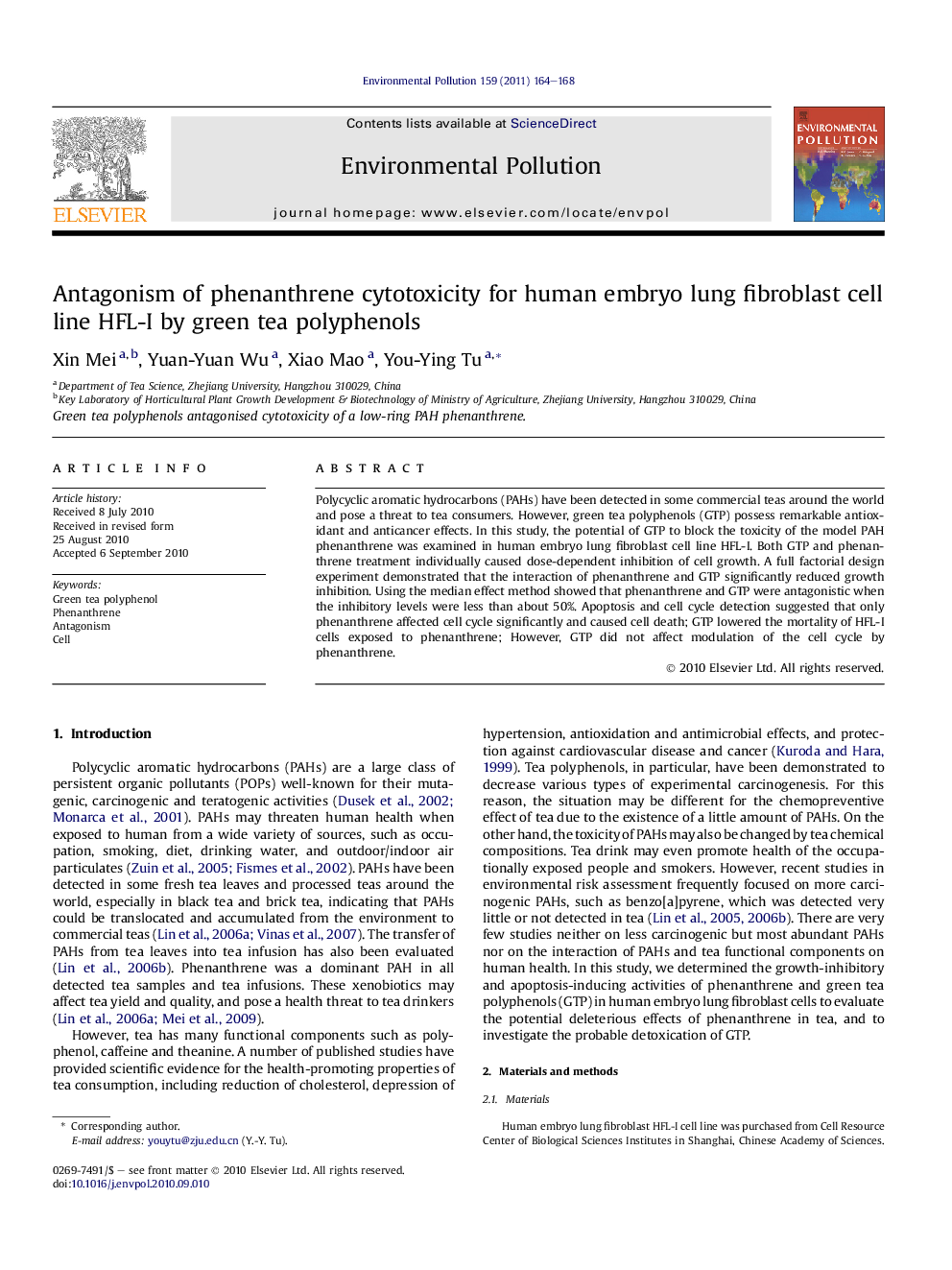| Article ID | Journal | Published Year | Pages | File Type |
|---|---|---|---|---|
| 4425634 | Environmental Pollution | 2011 | 5 Pages |
Polycyclic aromatic hydrocarbons (PAHs) have been detected in some commercial teas around the world and pose a threat to tea consumers. However, green tea polyphenols (GTP) possess remarkable antioxidant and anticancer effects. In this study, the potential of GTP to block the toxicity of the model PAH phenanthrene was examined in human embryo lung fibroblast cell line HFL-I. Both GTP and phenanthrene treatment individually caused dose-dependent inhibition of cell growth. A full factorial design experiment demonstrated that the interaction of phenanthrene and GTP significantly reduced growth inhibition. Using the median effect method showed that phenanthrene and GTP were antagonistic when the inhibitory levels were less than about 50%. Apoptosis and cell cycle detection suggested that only phenanthrene affected cell cycle significantly and caused cell death; GTP lowered the mortality of HFL-I cells exposed to phenanthrene; However, GTP did not affect modulation of the cell cycle by phenanthrene.
